Presentations
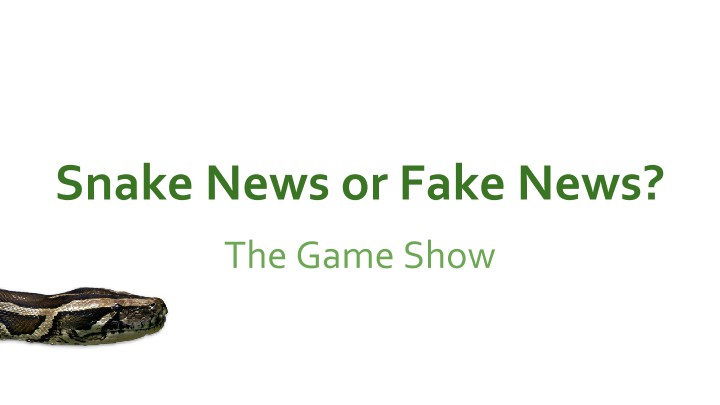
Snake News or Fake News? A Game Show About How Students Evaluate Scientific Information in Google Search Results
Charleston, SC, USA
This game show-style presentation gives an overview of a study that uses simulations of Google Search Engine Result Pages (SERPs), a think-aloud protocol, and interviews to capture student’s point of selection behavior and real-time cognition in judging the helpfulness, citability, and credibility of online resources.
Topics: Information Literacy
![“It [library tour] wasn't what do you do when you need to make a literature review…” Proactively Positioning the Library in the Life of the User](/content/dam/research/presentations/2019/082619-connaway-library-life-user-ifla19.pptx.thumb.1280.1280.png)
“It [library tour] wasn't what do you do when you need to make a literature review…” Proactively Positioning the Library in the Life of the User
Athens, Greece
In this keynote presentation, Lynn Silipigni Connaway provides context for the state of information seeking, and makes a case for positioning the library as more than just a place. She also provides examples for both academic and public libraries that are meeting the users where they are.
Topics: Information Literacy, Student Support
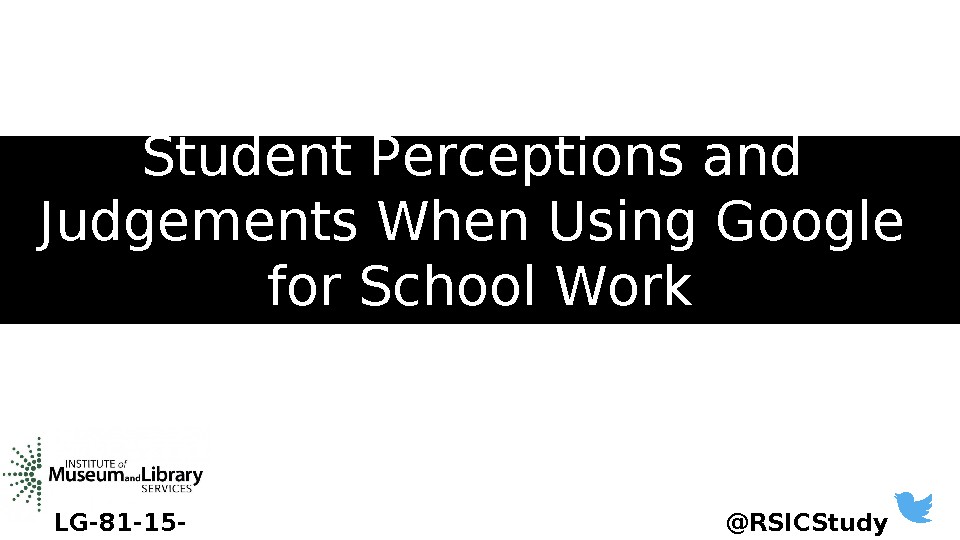
Authority, Context, and Containers: Student Perceptions and Judgements When Using Google for School Work
Athens, Greece
Two of the investigators of the “Researching Students’ Information Choices” project provide an in-depth update on this project that examines and compares the judgments and perceptions of students as they select resources for science-related school inquiry projects.
Topics: Information Literacy, Research Methods
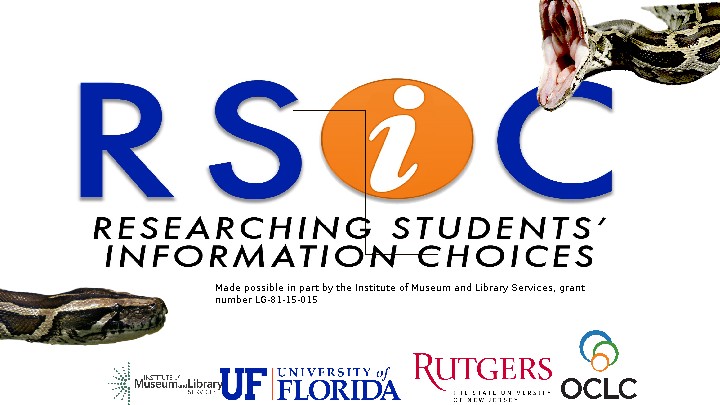
Container Collapse: Student Search Choices and Implications for Instructional Interventions
Washington, DC (USA)
This update from the project Researching Students’ Information Choices (RSIC) includes research and information concepts, methods, and the idea of “container collapse,” which describes the obscuring of information sources from the print containers that once provided visual context and cues to help individuals identify the documents’ origins.
Topics: Information Literacy, Research Methods
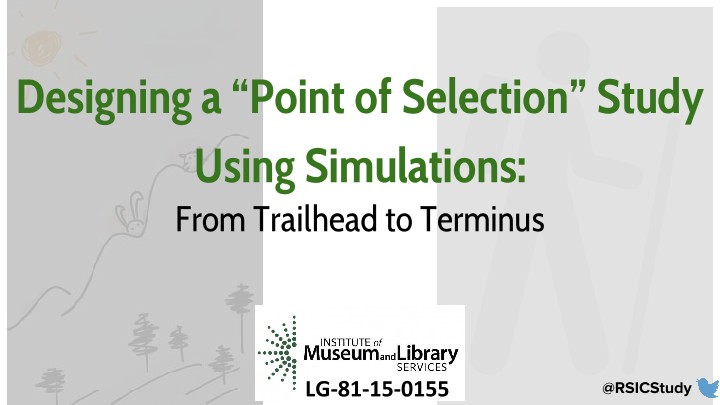
Designing a "Point of Selection" Study Using Simulations: From Trailhead to Terminus
Minneapolis, MN (USA)
Members of the Researching Students’ Information Choices (RSIC) project share results from a study on “point of selection” behavior, that is, the point at which an information seeker determines a resource meets their information need.
Topics: Information Literacy
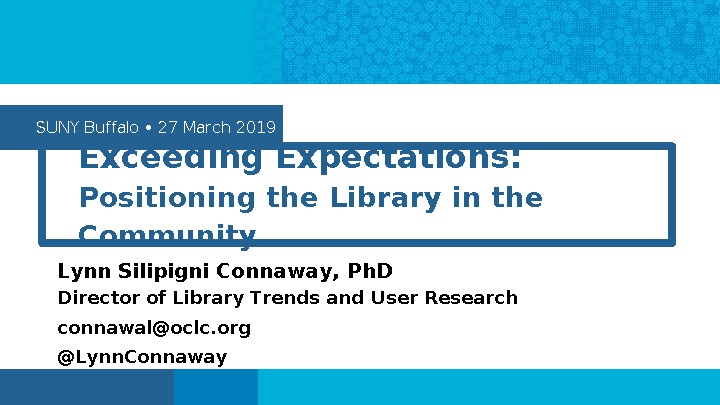
Exceeding Expectations: Positioning the Library in the Community
Buffalo, NY (USA)
Lynn Silipigni Connaway provides examples and recommendations of how libraries can increase their credibility and information literacy in their communities, whether an academic library or a public library.
Topics: Information Literacy

Information Literacy -- Visual Context Matters
Seattle, WA
Led by Lynn Silipigni Connaway: An IMLS-funded research project found that while students feel confident judging the credibility of online resources, they struggle to identify an online document's origin and measure its value due to a lack of visual context—an outcome called “container collapse.”
Topics: User Research, Information Literacy, Student Support